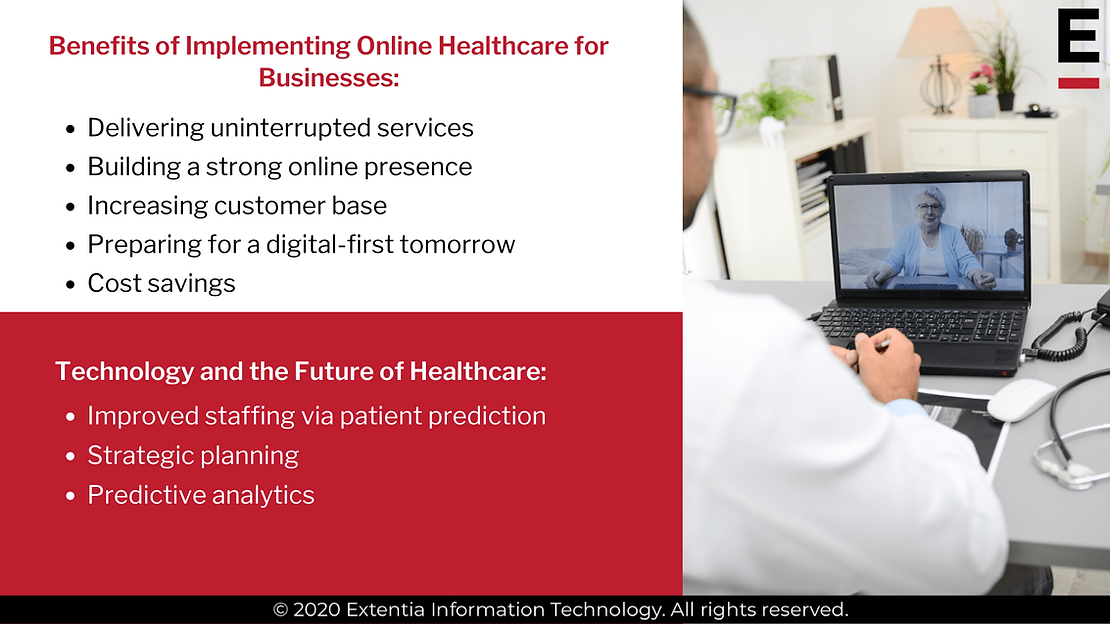The COVID-19 pandemic has been a rude awakening for the healthcare sector worldwide. In 2020, pre-pandemic, healthcare was primarily a physical business. The hospitals, doctors, and service providers weren’t in a rush to adapt to digital technologies for healthcare delivery, leaving a gap for the new age healthcare-tech companies to fill. Nowadays, consumers across all generations are shopping and searching online; sooner or later, it was inevitable that this sleeping giant would be awakened and forced to transition to the online delivery of healthcare services.
A survey conducted by Doctors.com in the US revealed fascinating insights into the adoption rates of online healthcare, post-pandemic. In the survey, 83% of people responded positively to using or trying online healthcare post-COVID-19. With demand shifting to online healthcare, hospitals, doctors, pharmacies, and service providers such as path labs now must upgrade and adopt digital technologies to meet consumers‘ expectations.
The business outlook for online healthcare looks promising as the demand for better healthcare access is increasing by the day. As per the Frost and Sullivan Global Digital Outlook 2020, the global online healthcare market is poised to grow to USD 234.5 billion in 2023 from USD 147 billion in 2019. The global online pharmacy market, driven by unprecedented demand in the US, France, Germany, the UK, India, China, and Japan is also expected to reach USD 131 billion by 2025 at a CAGR of 20%. These staggering forecasts are a motivating indicator for healthcare businesses to implement online healthcare from a business standpoint.
Let’s have a look at the online healthcare potential for healthcare services providers:
Benefits of Implementing Online Healthcare
Delivering uninterrupted services
The need for general non-COVID-19 healthcare has not receded during the pandemic; people were just scared to enter the hospital or any such premises. Patients still require consultation and follow-ups with doctors for health issues, long-term ailments, and chronic conditions. Additionally, patients need medication for treatments and tests for diagnosis. Doctors, online pharmacies, and service providers with a digital presence have an opportunity to reach out to new users of online healthcare and convert them into loyal customers.
Building a strong online presence
It’s not only the millennials and the younger generations that are shifting to online healthcare. According to the Doctors.com survey, around 75% of respondents aged above sixty have searched for healthcare-related information and services online. Building an online presence to serve this increasing demand for online healthcare is paramount for all healthcare industry players.
Increasing customer base
Online healthcare makes the delivery of healthcare services ubiquitous, enabling better access to patients in rural areas. It unlocks additional demographics of customers and patients that service providers can reach out to. Patients with constraints of traveling due to distance, time, and convenience are also potential customer bases that can be served more efficiently with online healthcare.
Preparing for a digital-first tomorrow
The online healthcare market is already getting crowded with start-ups armed with digital technologies and innovative business models. Pharmacies with wide distribution networks and service providers with smart apps are grabbing market share fast. Moving healthcare online with a smart digital strategy will ensure that businesses are futureproofed to meet the increasing demand for online healthcare.
Cost savings
Online healthcare can save costs in real estate, time, and other day-to-day operational needs. With features such as online consultation and appointment scheduling, doctors and patients can save commute time and avoid cancellations as well as missed appointments –gaining a better control of their schedule.
Companies That are Redefining Healthcare
Many start-ups are carving their niche in the online healthcare space by leveraging digital technologies. Here’s a list of companies that are redefining the healthcare space with their online healthcare offerings:
Doximity
Doximity is a San Francisco based company that provides a platform for healthcare professionals to connect with their peers and patients. It enables connecting with patients and doctors through call, video, or text, without revealing personal contact details. A leader in the US healthcare industry, the company has over 45% of the country’s NPs and 70% of doctors as its members.
PatientPop
PatientPop is a convenient platform for patients and doctors alike. A company based out of California, USA, offers online booking, anytime appointment scheduling, automatic follow-ups, and reminders. It is designed to improve the patient-doctor experience through convenience and simplicity.
Pharmacy2U
Pharmacy2U, the largest online pharmacy in the UK has seen rapid growth in business, with patients directly ordering medicines using their NHS prescriptions. It has also built massive infrastructure to keep up with the rising customer base, with fulfillment capacities that can dispense as many as 7.5 million products per month.
VillageMD
VillageMD, a Chicago based company, helps doctors to provide additional services such as counseling or disease education to their patients. It has a proprietary system called DocOS, which offers post-hospitalization services, patient-centric support, and proactive care.
Mayo Clinic
One of the most prominent names in global healthcare, Mayo Clinic has been at the forefront of adopting online healthcare to deliver affordable and convenient healthcare to their patients. This Rochester-based healthcare company provides services such as online consultation and has an excellent database for patients searching for healthcare-related information.
Technology and the Future of Healthcare
The future of online healthcare lies in combining the power of Big Data into healthcare through analytics. Healthcare analytics holds tremendous potential to improve people’s quality of life by reducing treatment costs, diagnosing life-threatening diseases at early stages, and predicting epidemics.
Let’s have a look at applications of healthcare analytics that will transform the industry:
Improved staffing via patient prediction
Hospitals can better plan staffing and resource allocation by analyzing hospital records of patient data. Data science can help hospitals optimize healthcare delivery by enabling them to have adequate resources at their disposal.
Strategic planning
Big Data will enable informed strategic planning to analyze patterns in diseases, identify factors that prevent people from availing treatments, and study different demographics. This will allow for better strategic planning for resource allocation and identification of potential epidemics.
Predictive analytics
The most useful application of analytics in healthcare lies in predicting and preventing diseases. Multiple start-ups have conducted extensive research to develop tools for predicting life-threatening diseases like cancer and diabetes in patients. Tools are also being developed to enable doctors to make real-time, data-driven decisions while delivering healthcare services.
The COVID-19 pandemic has pushed healthcare companies to take the plunge into digital with online healthcare. Demand for better access to healthcare services will ensure that only companies that meet the patients’ expectations and needs will find it easier to survive in this competitive sector. Moreover, analytics will play a significant transformative role in healthcare by enabling data-driven decision-making in patient care, strategic planning, and disease prevention.
We, at Extentia, have been at the forefront in providing transformative solutions in the healthcare space. In our next post of this online healthcare series, we will delve deeper into Extentia’s instrumental role in creating unique and future-ready technologies for healthcare providers.




